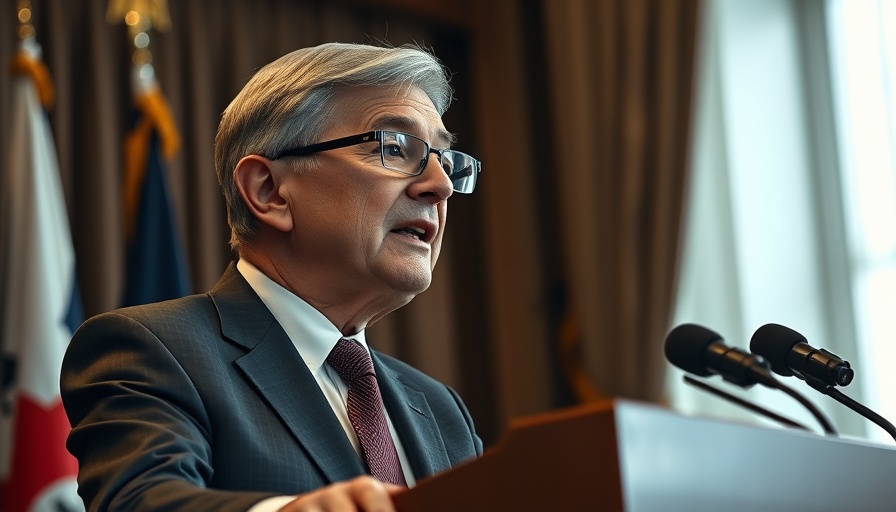
Trump's Fiery Critique of Fed Chair Jerome Powell
In an unexpected twist, former President Donald Trump has once again voiced his displeasure with the Federal Reserve's interest rate policies, going so far as to hint at the possibility of firing Federal Reserve Chair Jerome Powell. In a recent post on Truth Social, Trump labeled Powell a "Total and Complete Moron" due to his decision to maintain the current interest rates, which has stirred up a fresh wave of controversy in economic and political circles.
The Legal Controversy of Firing the Fed Chair
While Trump has been openly critical of Powell, the legal complexities around such an action make it an uphill battle. Federal law dictates that an official can only be dismissed "for cause," a stipulation that directly impacts the president's outlined powers. A Supreme Court ruling clarified the restrictions on presidential authority regarding independent agencies, designating the Fed as a "uniquely structured, quasi-private entity". Consequently, Trump's potential move to fire Powell remains speculative and fraught with legal challenges.
Why Powell's Policies Frustrate Trump
Trump's objections to the Fed center on its interest rate policies. Following a period of aggressive rate hikes aimed at tempering inflation, the Fed's current stance is viewed as overly cautious by the former president. Trump's argument is grounded in the belief that the economy is solid enough to justify cuts in interest rates, which he argues would stimulate further growth. On the contrary, Powell insists that keeping rates steady allows for careful observation of economic dynamics before making rash decisions.
The Economic Implications of Interest Rates
Interest rates play a pivotal role in the economy, influencing everything from consumer borrowing to investment decisions. High rates can stifle economic growth, making loans more expensive for individuals and businesses alike. Conversely, reducing rates too quickly may reignite inflation, which, while currently cooling off, still sits above the Fed's target rate of 2%. Powell's careful approach aims to balance these competing priorities, even as Trump pushes for more aggressive cuts.
Public Reaction and Future Insights
The ongoing tussle between Trump and Powell has elicited varied reactions from politicians and the public alike. Some support Trump’s call for lower rates as a means to foster economic growth, while others caution against the risks of overheating the economy. Notably, the enduring nature of this debate suggests that the direction of U.S. economic policy could hinge significantly on the upcoming presidential elections.
Reflections on Past and Future Economic Policy Trends
As the nation grapples with an economy in flux, past decisions regarding the Fed's approach to interest rates offer valuable lessons. Historical precedents show that misjudgments in monetary policy can lead to significant economic downturns, a fate Trump seems eager to avoid, even as he challenges Powell's leadership. The result of this standoff could set a precedent for how future administrations interact with independent entities like the Fed, impacting economic policies for years to come.
Actionable Insights for Readers
Understanding the implications of interest rate changes is crucial for all economic stakeholders. For those invested in markets or seeking loans, tracking the Fed's decisions and public statements can provide critical insights into future financial landscapes. Amidst political debates, staying informed about these developments allows individuals to make wiser financial decisions.
Conclusion: The Intersection of Politics and Economy
The ongoing conflict between Trump and Powell exemplifies a broader theme of how political sentiment can influence economic policy. Whether Trump ultimately pursues the drastic step of firing Powell or decides to maintain the current leadership, the implications for U.S. economic policy look profound. As observers of this evolving landscape, staying updated with the latest news can help individuals and businesses navigate their economic futures effectively.
 Add Element
Add Element  Add Row
Add Row 



Write A Comment